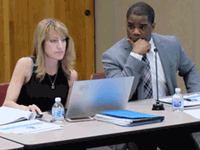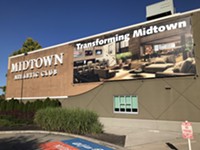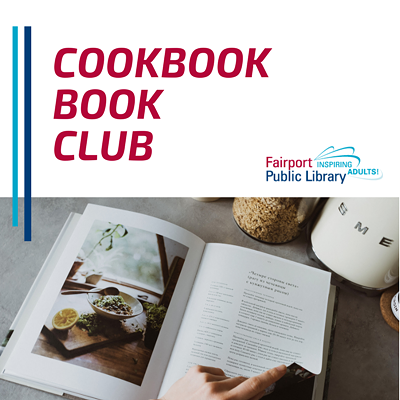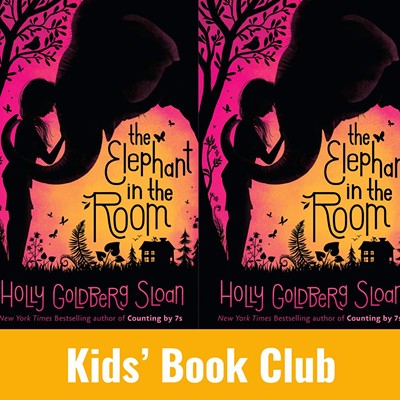[
{
"name": "500x250 Ad",
"insertPoint": "5",
"component": "15667920",
"parentWrapperClass": "",
"requiredCountToDisplay": "1"
}
]
It will not be a pretty campaign. President Bush is already seeing to that. And the people who analyze this stuff say the election will be decided by 8 to 10 percent of voters --- the folks who haven't already lined up ardently behind Bush or Kerry.
The Bush money, and the Bush attack ads, may give us four more years of a disastrous administration. Kerry has a chance, though --- if he can cut through the Bush smokescreen.
That means it's crucial that grassroots organizations, as well as reporters and editorial writers, show the Bush record for what it is.
Bush will sneer that Kerry is "liberal." Democrats have waited way too long to define that word.
"Liberals" expect government to collect enough money to pay for a good education for all children. "Liberals" believe that quality, affordable health care is a right, not a luxury.
"Liberals" believe that the way out of poverty is a decent wage. "Liberals" want to the government to help protect the nation's environment --- to make sure that air and water don't make us sick, that forests and national parks are treated as treasures, not as commercial opportunities.
"Liberals" want a government that respects and fosters individual rights and privacy, not a government that spies on its own citizens or detains and abuses innocent visitors and non-citizen residents.
"Liberals" want a progressive tax system. "Liberals" believe that citizens and businesses should provide money not only for defense but also for vital social programs. "Liberals" believe that the wealthiest people in the nation have a responsibility to pay higher taxes than low and middle-income people.
"Liberals" believe that corporations should pay their fair share of taxes, that the government should not give tax breaks to US corporations that ship jobs out of the country --- or that set up fake headquarters in non-tax countries.
There are long months ahead. President Bush will campaign on meaningless slogans, because he is compelled to keep attention off of his record. John Kerry will have a tough race. But no one, not Kerry, and not voters, should let the president define the terms and the language of the race.
If they look hard, average voters may realize that they're more liberal than they think.
Beyond 'Choice'
The Hot Topic for the Rochester school district this winter has been the new School Choice plan. The district has been divided into three zones, and parents of kindergarten children can choose which school in their zone they want.
Most of the seats in each school will be reserved for children from the immediate neighborhood. But not all of them will be, and so it's possible that some children will not get to go to their neighborhood school, even if they want to. It's also possible (and probably likely) that children who choose a school outside their neighborhood won't get their first choice. In other words, there are no guarantees. And some parents have been upset.
I would welcome the plan if I thought it would improve education. But I don't think it will.
In part, the School Choice plan is a school-integration plan. It lets parents in poorer neighborhoods choose a school with a not-quite-so-poor student body. I believe in school integration. I've applauded many a school-integration plan. Our oldest daughter was bused to an elementary school across the city during the height of Rochester's school-integration days. And she's much the better for it.
But we're way past the time when Rochester could integrate its schools. The student population is heavily non-white and heavily poor. This district is impossible to integrate.
Integration isn't the primary purpose of School Choice. Choice is supposed to improve students' performance. It's supposed to make "selecting a school fairer and more equitable for all families."
Simply put, the plan is supposed to give parents of children in "bad" schools a way to send them to "better" ones.
But there, the logic breaks down. If school board members endorse the School Choice plan, aren't they agreeing that some schools really are bad? So bad that parents should pull their children out of them? And when the "better" schools fill up, what should school board members do? Shrug their shoulders and say "better luck next year"?
The fact is, it isn't the schools that are bad. It's the concentration of poverty in the city, the concentration of children with multiple health problems, the concentration of children from troubled neighborhoods and troubled homes, the concentration of children whose parents themselves were poorly educated.
If school board members believe that some schools are so bad that children should be given a chance to escape them, they should close those schools down. Right now.
That's not the answer, of course. Neither, unfortunately, is School Choice.
School Choice kicks in next fall. My hunch is that it will be far less traumatic than its critics fear. My hunch is that most parents won't opt to send their children to a different school, and that most children, if not all, will get to go to their neighborhood school if they want to.
But in the end, little will have changed. We'll spend a bit more on transportation and on whatever administrative work is needed to start the plan and keep it going. But it won't improve the "bad" schools. And it won't have much effect on students' performance.
What is the answer? Oh, I don't know. Nothing that anybody wants to do, that's for sure. But in my most idealistic moments, I look back on the early days of Rochester school integration, when our oldest daughter caught a bus and rode 30 minutes to her elementary school just off Genesee Street in Rochester's inner city.
There, she was joined by an almost electrically charged group of teachers and administrators --- and children from all over MonroeCounty: inner city, outer city, and suburban; poor and affluent; black, white, Hispanic.
There were small classes, and an incredible art room and science room. Jazz great Marian McPartland showed up one day with her band, and played, and let the children try the instruments.
There was a waiting list to get into the school. Parents signed up their children at birth. The place was so popular, and visited so often, that parent volunteers gave tours.
The school was the World of Inquiry --- a city elementary school. It lives today, less well funded, less publicized, and less the county-wide magnet that it once was.
So here's my idea: Establish a city-suburban magnet school, with support from the Rochester district and a couple of suburbs. Make it so special, so attractive, so unusual that parents will stand in line to get their children into it.
Then establish another. And another. And another.
Can we afford it? I don't know. In its first years, the World of Inquiry got funding from the Ford Foundation and the National Science Foundation, among others.
But not everything about that kind of school costs a lot of money. My hunch is that if Rochester Superintendent Manny Rivera could convince, say, the Brighton and Fairport superintendents to join him in founding a new, "metropolitan" school, the three districts wouldn't pay much more, per pupil, than they do today.
The State of New York is now trying to find a way to comply with a court order that will add millions of dollars a year to the state budget. The court found that New York City does not provide enough money to give its children the quality education guaranteed by the state constitution.
Whatever the state does to meet the court order, it will not be cheap. And, in the end, the state will have to provide more money for all of its other urban school districts.
Establishing city-suburban schools --- letting poor children attend racially and economically integrated schools --- is a heck of a lot cheaper.
And more effective.
Want to comment? Write
Speaking of...
-

Urban Action 8/14
Aug 14, 2019 -

In the RCSD-city fight, the children are losing
Jul 30, 2019 -

There's no one 'fix' for the RCSD's problems
Jun 18, 2019 - More »
Latest in Columns
More by Mary Anna Towler
-

Police reform: advocates on what should come next
Oct 22, 2019 -

Court clears the way for Police Accountability referendum
Oct 17, 2019 -

Dade outlines initial actions on district deficit
Oct 9, 2019 - More »





